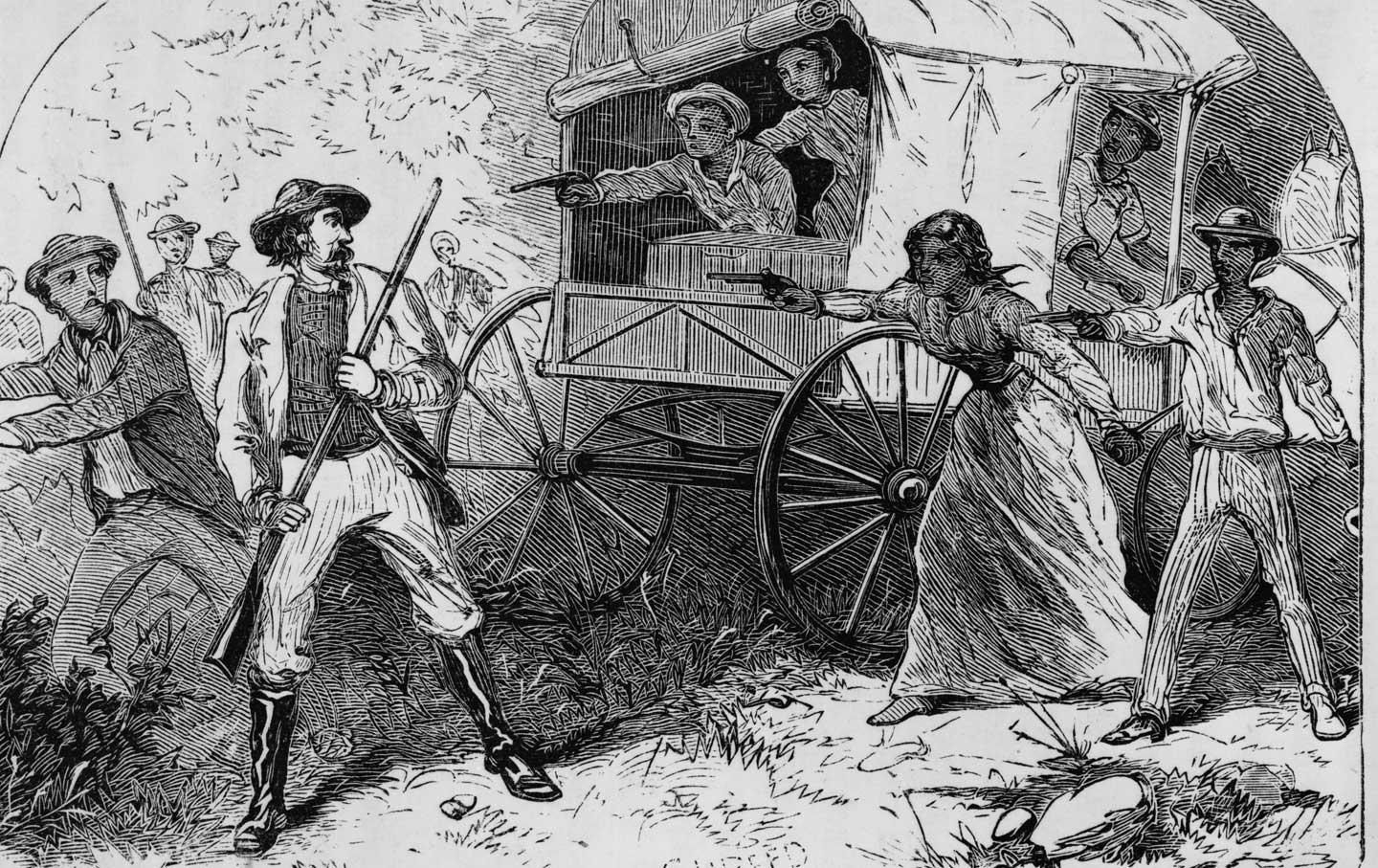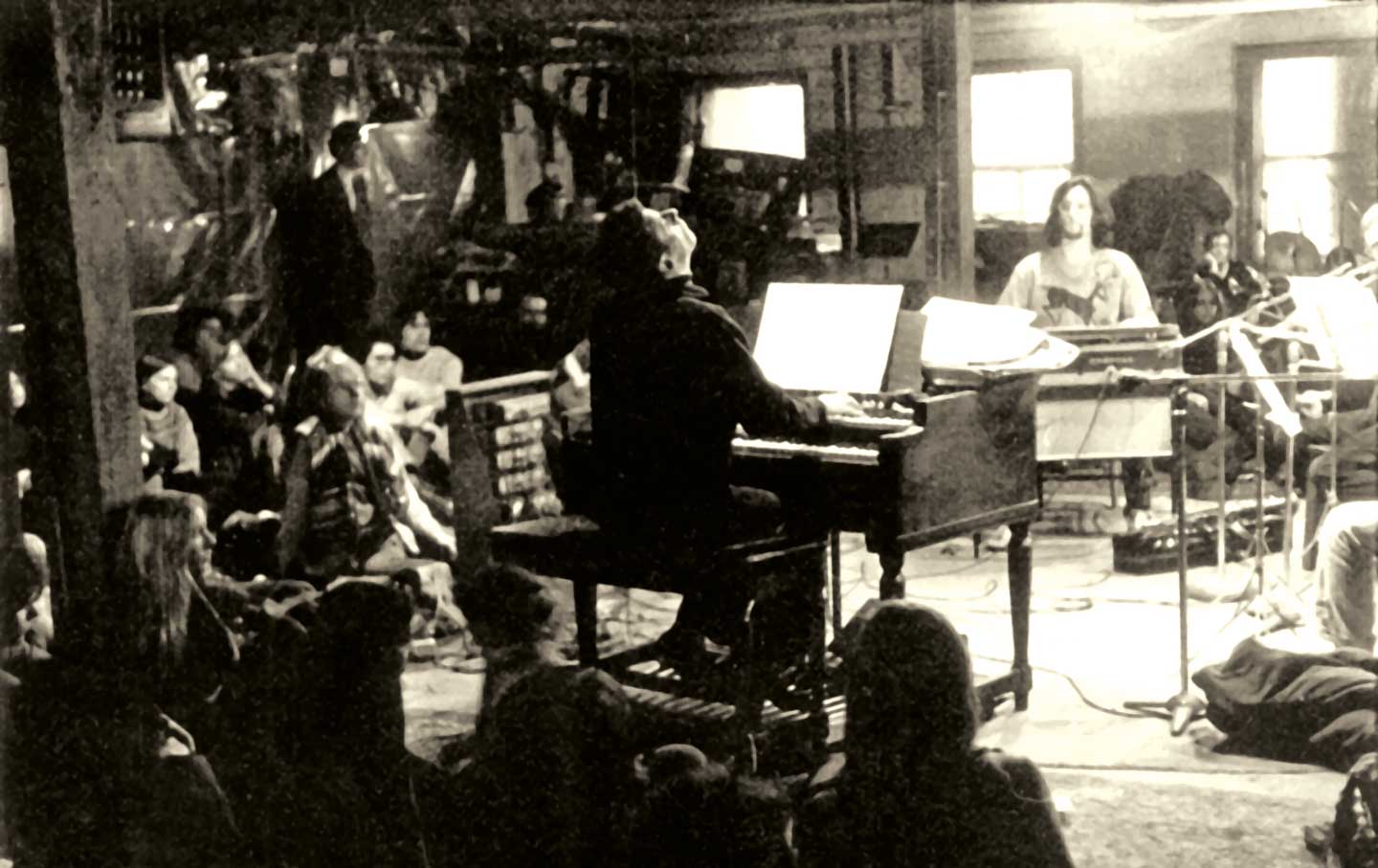
In Our Orbit: Vigilance In Our Orbit: Vigilance
In Eric Foner’s Gateway to Freedom, the Underground Railroad is a network of dignity and defiance.
Apr 22, 2015 / Books & the Arts / Richard Kreitner

Rivalries Rivalries
Clouds of Sils Maria is prolonged debate about the passage of time and the ceaseless rivalry of generations.
Apr 22, 2015 / Books & the Arts / Stuart Klawans
Out of Habit Out of Habit
The soldier the patrol forgot in the garden, the patrol the border guards forgot at the checkpoint, the checkpoint the occupation forgot at the doorstep, the occupation the politician forgot in our lives, the politician who was a soldier of the occupation. The Merkava the army forgot at the school, the army the war forgot in the city, the war the general forgot in the room, the general whom peace forgot in our sleep, the peace that was driving the Merkava. They still open fire at our heads, without orders, just like that, out of habit. (translated from the Arabic by Fady Joudah)
Apr 22, 2015 / Books & the Arts / Ghassan Zaqtan

Shelf Life Shelf Life
“There is no such thing as not voting” is the faith that Darryl Pinckney grew up in.
Apr 22, 2015 / Books & the Arts / Ari Berman

Liberalism as a Fighting Faith Liberalism as a Fighting Faith
Larry Sidentop re-imagines the origins of liberalism.
Apr 14, 2015 / Books & the Arts / James Miller

Words for Music Perhaps Words for Music Perhaps
Warm and unaffected, Philip Glass’s memoir is nothing like his music.
Apr 14, 2015 / Books & the Arts / David Hajdu

How to Die How to Die
Atul Gawande argues that physicians should focus care on the good life—including its very end.
Apr 14, 2015 / Books & the Arts / Sophia Rosenfeld
Pinwheel Pinwheel
In the back of my classroom stands Blake’s car Bearing Dante’s blest Beatrice; In martial middle, ranked desks, each Packing a lexicon in undercarriage; On one book’s pressed pages, surprise!—a raised Nazi swastika. Find the kid who did it, turn him in to turn Him out? Or claim “a teaching moment,” Redeem the inditer, if woe Like that might ever be removed, might ever Cease being banal? Maybe one should give Credit—extra—for burning Hate not on synagogue wall or lav stall, But on language itself, on thought, A ready reference, a wrought Consciousness, edginess? Perhaps one must Pass on the sinner instead, deal with just The sin, that is, in all Literalness—save at least time and trouble, Change what can be changed, blacken out The offense with more ink (no doubt A “cover-up,” but what the hell)? Would “Wite- Out” be better? Or the ultimate hit, Scissor snipping, eh, bubba? We mouth each day, “…with liberty and justice For all,” and study Douglass, Twain, Truth, Addams, Joseph, Peltier, Tan, Cisneros, King, and on, but to what end? The Indian benediction is bent Backwards, blessing made curse, Love made hate, again and again, a wheeling Known all too well. Wheel, whorl, Blake-Dante Vortex, spirit-world spinning on, Esti, asti, ist, is… This then: add four More arms, close the figure, window it. More Pinwheel, if you will. Still.
Apr 14, 2015 / Books & the Arts / Rod Kleber

Shelf Life Shelf Life
In Nell Zink’s The Wallcreeper, biology fails to determine anything at all.
Apr 14, 2015 / Books & the Arts / Hannah Gold

Grim Reaper Edition Grim Reaper Edition
The best live shows, audiobooks and Eric's funeral playlist: it's all inside today's Altercation.
Apr 14, 2015 / Books & the Arts / Eric Alterman
